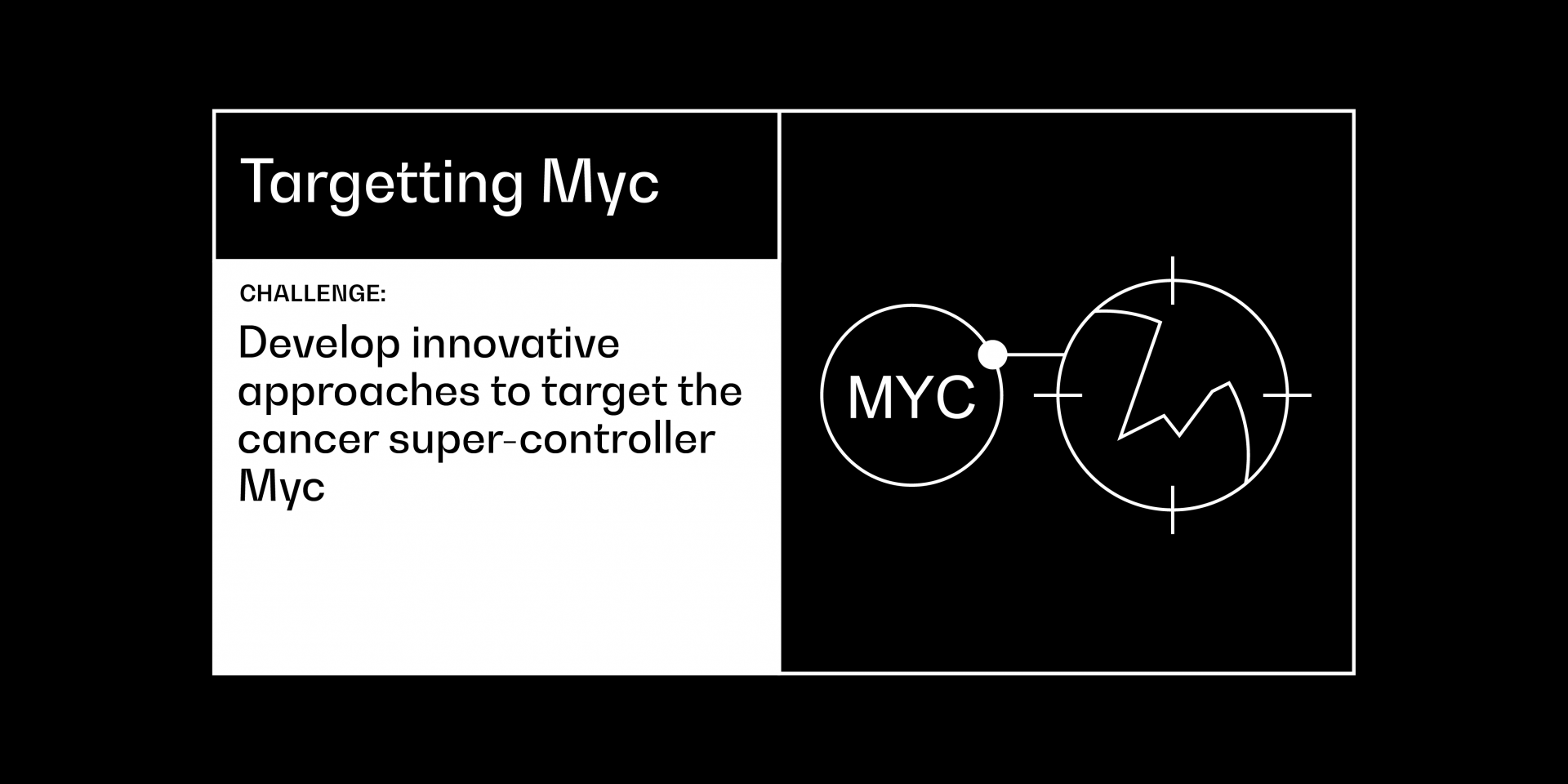
Targeting Myc
Challenge: Develop innovative approaches to target the cancer supercontroller Myc
This was a challenge in an earlier round, we are not currently accepting applications for this challenge.
Context
Mutation of the Myc oncogene contributes to the genesis of many human cancers, and tumours with elevated MYC protein often exhibit highly proliferative, aggressive phenotypes.
Experimental models have convincingly shown that MYC is required for tumour maintenance and it is clearly a compelling target for therapeutic intervention. Yet, despite considerable efforts, no drugs that effectively target MYC have been developed.
There are already large programmes of work dedicated to drugging MYC and other key cancer targets that are ‘undruggable’ such as p53 and Ras. These programmes have helped to fund and coordinate concerted efforts in conventional biology and drug discovery for these targets. However, in light of the difficulty of the problem, we feel that new insights from non-traditional disciplines could provide the breakthrough that the field is looking for.
If successful, this would represent a transformational advance in the potential treatment of many different cancers. Being able to target proteins like MYC would also have wide-reaching benefits to other disease areas where it would be desirable to interrupt major transcriptional controllers that work in a similar way
Barriers and opportunities
The challenge here is two-fold: in cancer, MYC is constitutively switched on, so a therapeutic approach needs to dampen or silence it. And because MYC is a transcriptional super-enhancer, therapeutic strategies that successfully achieve this goal will also have significant effects on normal cell function.
The second challenge is that the protein expressed by the Myc gene does not lend itself to conventional drug discovery approaches – it has no deep ‘pockets’ like many other cancer drug targets and carries out its role through fleeting interactions with other proteins. Targeting protein–protein interactions like these is notoriously hard to do and a breakthrough in this area would have a huge impact on the biomedical research field more broadly.
Vision and Impact
Overcoming this challenge would be a transformational advance in the potential treatment of many different cancers. Being able to target proteins like MYC would also have wide-reaching benefits to other disease areas where it would be desirable to interrupt major transcriptional controllers that work in a similar way
Plain language summary: Why targeting Myc?
Myc is a gene that is mutated and persistently switched on in the majority of human cancers – it’s a hallmark of the disease in nearly seven out of ten cases.
Mutant and overactive Myc helps tumours survive, and this strongly suggests that blocking its function would be a powerful approach to treating many types of cancer.
Of course, Myc isn’t the only gene mutation that’s linked to cancer, so why is this a Cancer Grand Challenge? It’s partly because the gene makes a protein (called MYC) that is a powerful ‘super controller’–a vital hub at the centre of a vast communication network within cells, and the properties of the MYC protein itself make it really difficult to design a drug against it.
This challenge needs more than just money. It needs new thinking, innovation and a wide range of expertise.